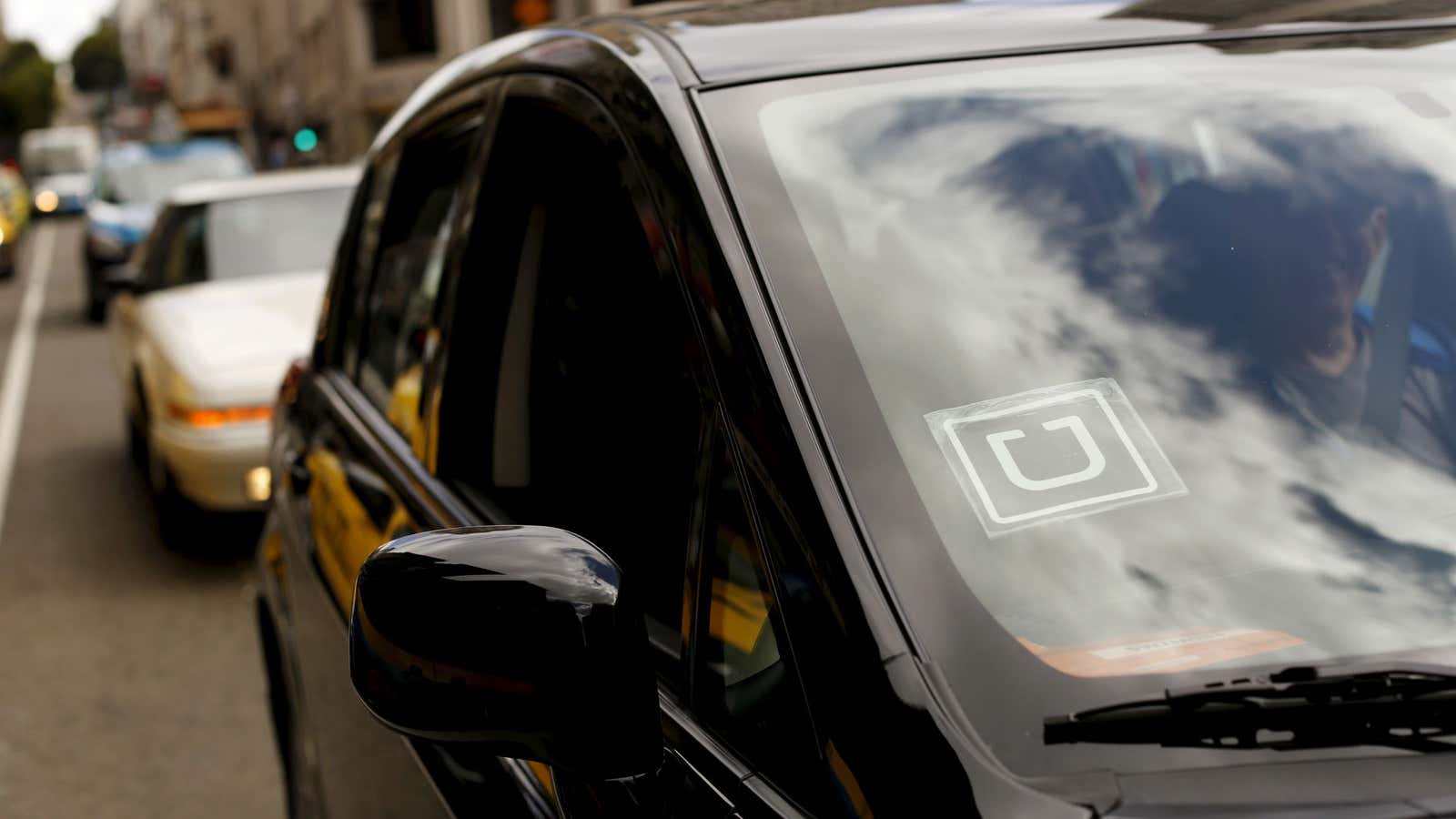A single driver’s $4,152.20 judgement against Uber may force radical changes to its business model.
The California labor commission ruled in early June that an Uber driver who used the company’s platform to find passengers is an employee, not an independent contractor, Reuters first reported today. Uber is appealing the decision, according to court documents posted online.
The distinction is important because employees are owed more protections and benefits than contractors—which might hurt Uber’s reported attempts to raise money while valuing the company at $50 billion. The share of its gross revenue that goes to driver expenses is one of the key metrics in determining its potential profitability.
“The California Labor Commission’s ruling is non-binding and applies to a single driver,” an Uber spokeswoman said in a statement. “Indeed it is contrary to a previous ruling by the same commission, which concluded in 2012 that [a] driver ‘performed services as an independent contractor, and not as a bona fide employee.’ Five other states have also come to the same conclusion.”
The current labor commission ruling came after a driver, Barbara Ann Berwick, made a claim for unpaid wages and reimbursement of expenses, including a $160 ticket for stopping in a lane of traffic to drop off a passenger, against Uber in September 2014.
“Defendants hold themselves out as nothing more a than a neutral technological platform, designed simply to enable drivers and passengers to transact the business of transportation,” Stephanie Barrett, the deputy Labor Commissioner who heard the claim, wrote in her decision. “The reality, however, is that Defendants are involved in every aspect of the operation.”
This administrative decision affects only one driver and may not stand on appeal, but California’s first official recognition of mis-classification could have major repercussions if other bodies find that Uber drivers are employees.
“While not binding precedent, it is something an attorney would want to get in front of an adjudicating body,” Tamara Devitt, a California labor and employment lawyer at Haynes and Boone, told Quartz. “For Uber, it’s going to be something they have to deal with on the defense.”
In particular, a group of drivers launched a class action lawsuit in the US against Uber and competitor Lyft in order to be recognized as employees and secure those benefits. They argued that extensive work requirements, insurance costs, full-time work schedules, and sometimes even car financing qualifies them as full-time workers. But other drivers—according to Uber, a majority—work less or for multiple platforms and value the leverage this gives them. A US federal judge has said the decision must be made in a forthcoming trial by jury.
Complicating the issue is that Uber drivers’ work circumstances vary in different jurisdictions around the world; in some places, it is very simple to become an Uber driver, and in others, significant professional certification is required.
